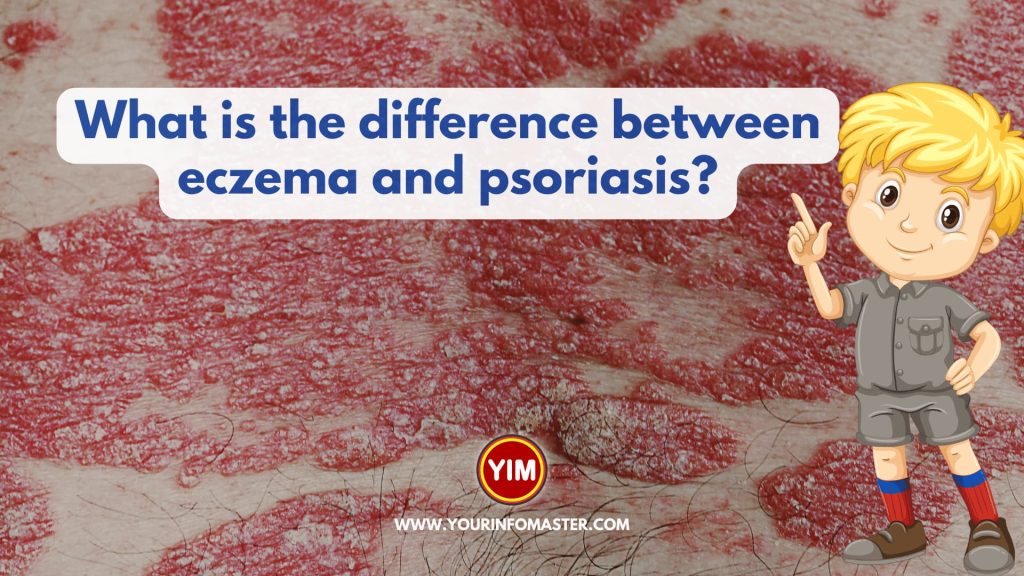I am going to explain the blog post “What is the difference between Eczema and Psoriasis?“
Are you confused about the difference between eczema and psoriasis? While both skin conditions can cause redness, itching, and irritation, they have different underlying causes and treatments. In this blog post, we’ll explore the differences between eczema and psoriasis, throughout to reinforce their distinction in your mind.
Check also: Water Intake Calculator
10 Differences between Eczema and Psoriasis
Here is a list of 10 differences between Eczema and Psoriasis:
- Cause: Eczema is believed to be caused by a combination of genetic and environmental factors, while psoriasis is an autoimmune disorder.
- Appearance: Eczema typically appears as dry, itchy patches of skin, while psoriasis appears as thick, red, scaly patches.
- Age of onset: Eczema often develops in infancy or childhood, while psoriasis usually develops in adulthood.
- Location: Eczema typically appears on the face, neck, and limbs, while psoriasis often appears on the elbows, knees, and scalp.
- Itching: Eczema is often very itchy, while psoriasis may not cause itching.
- Triggers: Eczema may be triggered by allergens, stress, or temperature changes, while psoriasis may be triggered by infections or injury to the skin.
- Treatment: Eczema is typically treated with moisturizers, topical corticosteroids, and avoiding triggers, while psoriasis may require more aggressive treatment, including phototherapy or systemic medications.
- Associated conditions: Eczema is often associated with asthma and allergies, while psoriasis may be associated with other autoimmune disorders, such as psoriatic arthritis.
- Severity: Eczema can range from mild to severe, while psoriasis can also range from mild to severe and can be disabling in some cases.
- Prognosis: While both conditions are chronic, they can be managed with treatment. Eczema may improve with age, while psoriasis is a lifelong condition.
Conclusion
In conclusion, while eczema and psoriasis may share some similarities in appearance and symptoms, they have different underlying causes and treatments. Understanding the differences between the two can help you and your healthcare provider develop an appropriate treatment plan for managing your skin condition.
If you really enjoyed the article “What is the difference between Eczema and Psoriasis?,” then I would be very grateful if you’d help it spread by emailing it to your friends or sharing it on Twitter, Instagram, or Facebook. Thank you!
Have you read “What is the difference between Eczema and Psoriasis?“ Which of these blogs are you reading, and how is it similar to one of them?

